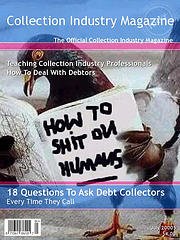Debt in America

Most Americans right now are living in debt. Whether it's simply a mortgage or student loans or a car loan, or heavy debt built up on credit cards, we all are living on borrowed cash. How did this happen? My grandparents lived in a time when you had to earn all the money beforehand to purchase a house or a car. It meant that very few people owned their homes and cars were a luxury, not a necessity. The innovation of credit as a real industry completely changed the life of Americans, mostly for the better. Far more Americans live in homes they own (or are working on owning, paying off the mortgate). Most Americans own a car (or are paying off the loan in order to own it). And we all live much better lives because the entire economy is turbo-charged by the huge amount of cash cycling through, much due to credit and buying on credit.
But there is a dark side to consumer credit. Over the past 20 years or so, credit companies have lobbied successfully to change the lending landscape, in their favor. Credit cards used to have strict limits based on the consumer's income level and credit rating. Now those caps are mostly inapplicable, and children receive "pre-approved" credit card offers. My son actually did receive a number of credit card offers before he was 18 years old. He had a magazine subscription in his name and that was enough. Pets have received these offers.
Along with the enormous rise in the amount of money being lent, through consumer loans and especially credit cards, the credit industry has lobbied to change collection and bankruptcy laws to make it easier for them to retrieve the money they lend, plus interest. The link to the title of this entry is a series of excellent investigative articles from The Boston Globe on the abusive practices used right now by collection agencies that buy the loans and collect, sometimes by seizing property that was not in the loan agreeemnt, and usually by intimidation.
There are still some protections in place for consumer debt. Here are a few sites that might be helpful:
Nolo
Nolo Press specializes in self-help publications for non-lawyers who need legal information. This is a brief statement about consumer protection, with links to state consumer protection agencies, and other helpful reports. You can also buy books from Nolo Press here.
FTC Credit Website
The Federal Trade Commission site with links about Fair Debt Collection, credit reports, debt counseling, bankruptcy, and filing complaints on abusive practices.
Federal Reserve Board
Includes information on how to file a complaint against a bank, but also links to FAQs about various credit related federal laws, all linking to the FTC, coincidentally.
FCIC Consumer Information
A website on Consumer Protection, but not really focused on debt issues. It does have helpful links to state consumer protection agencies (in case you didn't find what you need at Nolo, above). Has other issues, such as identity theft, phishing, spam, telemarketers.
Consumer Reports
A non-profit group that you may have heard of for their automobile ratings, they also provide this list of consumer protection help sites as a public service. Good for them!
DMOZ
A very helpful link site. For debt-specific info, follow the link for "Personal Finance." DMOZ is part of the Open Directory project, a human-organized list of huge varieties of things, structured like Wikipedia and open source movement, around volunteers making their expertise available.
NACA
National Assn. of Credit Advocates. Good folks to have on your side.
Credit Wrench
I think this is a spoof part of the website. Follow the logo in the top left corner to get to Creditwrench.com which claims it will teach you how to get rid of creditors and collectors. I got the image for this decoration from the creditwrench site above.
1 comment:
That image isn't a spoof. It is an image designed to convey the idea of what debt collectors who are actually America's most wanted criminals constantly do to consumers.
Creditwrench teaches their tricks and traps and how to deal with their abusive collection practices
Post a Comment